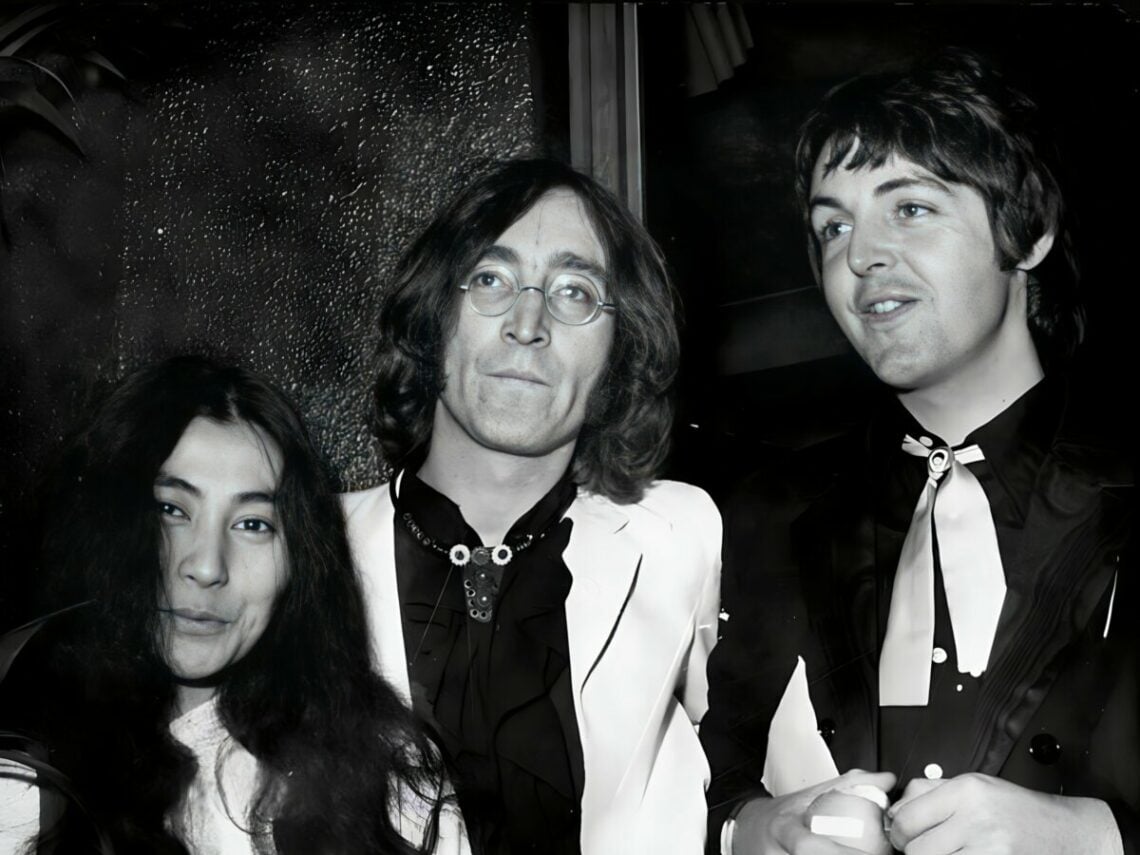Almost every iconic song by The Beatles is usually indebted to the songwriting talents of John Lennon and Paul McCartney. While George Harrison would grow as a writer and craft spellbinding productions in the group’s later years, Lennon and McCartney’s partnership would never be equalled in the pop sphere, with Lennon’s cynicism providing the ultimate retort to McCartney’s optimism. Although Yoko Ono would have a drastic influence on Lennon’s artistic expressions, McCartney thought she may have ghostwritten one of the band’s last masterpieces.
By the time the group had started work on their expansive double album, though, Ono already had a strong presence in the recording studio. Accompanying Lennon to every session, Ono was known to make passing comments about where the songs should go and even get credits for vocals on tracks like ‘The Continuing Story of Bungalow Bill’. While band morale wasn’t high then, McCartney thought the next best thing would be for them to strip things down on Let It Be, which became a disaster.
Having no resources to work with any of their ideas, the band had to put most of their sessions for the album on the shelf, not surfacing until months after they broke up. Not wanting to leave their audience hanging, the band got together again with producer George Martin, putting together one final masterpiece on the album Abbey Road.
While Harrison would provide two iconic tracks for the album ‘Something’ and ‘Here Comes the Sun’, Lennon was getting into more artistic material, putting together songs based on his various avant-garde detours like ‘I Want You (She’s So Heavy)’. Although tracks like ‘Come Together’ would become Lennon’s most famous compositions from the record, the track ‘Because’ marked the moment he took on classical music.
Taking the sounds of Beethoven’s Moonlight Sonata played backwards, the song features breathtaking imagery about the world, with Lennon musing about how the blue sky makes him shed tears. Although the track benefits from every band member singing, McCartney thought that the biggest inspiration for the song came from Ono.
Although the song isn’t a traditional love track, McCartney thought that Ono’s style of poetry was all over the song, telling Many Years From Now, “I wouldn’t mind betting that Yoko was in on the writing of that. It’s rather her kind of writing: wind, sky, and earth are recurring. It’s straight out of [Yoko’s poetry book] Grapefruit.“
Taken along with Ono’s book of poetry, it’s easy to see where Lennon got his inspiration, featuring simplistic images that depict the simple pleasures of existence. There are even a few passages in the poetry book that would inform Lennon’s writing later, including one piece that features the word “imagine” to start every single line.
Despite not having a hand in the song’s writing, ‘Because’ would become a favourite among Harrison and McCartney and even be used as one of the central samples on the group’s final single, ‘Now and Then’. Even though Ono may have been considered a hindrance to the sessions by some Beatles fans, the sweeping orchestral sounds of ‘Because’ remain one of the finest moments in the group’s catalogue.



